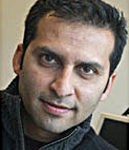For Sir Syed, the study of nature in itself takes on a religious duty. For him, advances in science will get us closer to reality, which in turn will get us closer to the real meaning of the Quran.
By Salman Hameed
In 1848, Sir Syed Ahmad Khan wrote an essay that fervently argued against the motion of the earth around the sun. However, within 15 years, he had abandoned this position and had started developing a framework of reconciling findings of modern science with Islam. On October 17, 2017, the earth had gone around the sun 200 times since the birth of Syed Ahmad Khan in Delhi “ the capital of the then waning Mughal empire.
Evolutionary Processes
The bicentennial of Sir Syed’s birth is perhaps a good opportunity to look at his views on science and religion. We are today living in a world that is shaped by modern science and its derivative technologies. Some origin questions that were traditionally in the domains of religion and philosophy now lie within mainstream science. We have good evidence to believe that our universe is approximately 13.7 billion years old, that the Sun and the Earth were formed in a gaseous nebula 4.5 billion years ago and there are billions of solar systems in our own Galaxy alone, and that all life on Earth is related to one another both in composition and through the evolutionary processes that have shaped it.
Understandably, some of the origin questions have also led to tensions and conflicts with traditional religious interpretations. Many Evangelical Christians in the United States, for example, reject much of modern astronomy because they believe in an earth that is only a few thousand years old. Similarly, some Muslims and Christians are uncomfortable with one of the central ideas of biology that deals with evolution of life on earth. Of course, none of these are monolithic group rejections and there are diverse interpretations within each religious group as well.
It is in this context that we can look at Sir Syed’s approach to science and religion. One of the foundational principles he laid out for his Tafsir stated that, “nothing in the Quran contradicts the law of nature”. For him, the “Work of God” cannot contradict the “Word of God” (Sir Syed used these English words in his Urdu Tafsir). Any contradiction is apparent, according to him, and he provides a detailed framework for interpreting the Quran in any such circumstances. For example, he blamed the adoption of Greek astronomy into the commentaries of the Quran for the resulting Islamic opposition (and presumably his own earlier position) to the earth’s rotation around the sun. For our purposes, what is important is not the specific case, but the broader principle of incorporating established ideas of science.
In fact, for Sir Syed, the study of nature in itself takes on a religious duty. For him, advances in science will get us closer to reality, which in turn will get us closer to the real meaning of the Quran. To critics who thought that the studying of modern science can lead to atheism, his retort was clear: “It is an idiocy (baywaqoofi) for people to think that those who follow natural science, can lead to raising the flag of the kingdom of atheism.” There can be atheists (dahirya) and agnostics (la Idriya). But “Naturebeen” are the ones who believe in the laws of nature and that a Creator created those laws. For Sir Syed, these “naturebeen” are the real Muslims (“thet Musalman”) and the followers of real (“thet”) Islam.
Contemporary Science
I can imagine that for some, Sir Syed’s emphasis on science in the matters of religion is not only misplaced, but also misguided. His instance on the existence of natural explanation for religious miracles was, and is, considered too controversial. For some, his unabashed admiration for the British is the problem. However, there are others who may find his approach refreshing and a recipe for a successful engagement with some of the challenges posed by contemporary science. While Sir Syed’s educational and political legacies have been well appreciated, his principles of approaching science and religion may leave him with a longer and a more global legacy.
Happy 200th birthday, Sir Syed!
(Salman Hameed is associate professor of Integrated Science and Humanities at Hampshire College, USA. This is a slightly edited version of his article).


COMMENTS